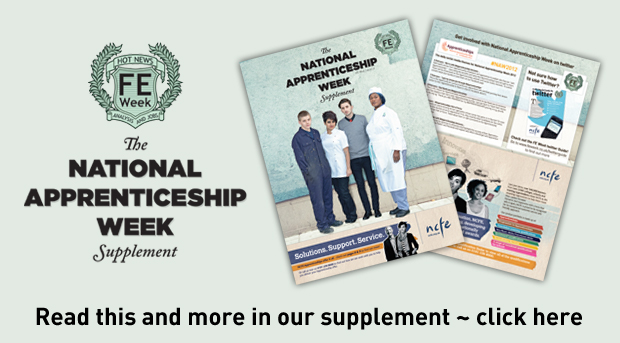The debate around apprenticeships over the last few months, which has now prompted a Commons select committee inquiry, was originally sparked by FE Week’s coverage of ‘short-course’ apprenticeships and we know that the publication is able to talk knowledgably about the subject, even if we may not always agree with its opinions.
However I cannot extend the same compliment to some of the other comment which I have seen on the matter.
First and foremost some observers seem to hold a traditional and therefore inaccurate view of what an apprenticeship actually is.
That is why the Association of Employment and Learning Providers (AELP), which represents providers who deliver over 70 per cent of apprenticeships in England, is using its submission to the select committee to firstly secure a clear, universal definition of an apprenticeship. We set out our proposed definition in our well-received position paper to ministers last autumn, namely:
“An apprenticeship is a competence based skill development programme, designed and endorsed by employers for their employees, which combines independently accredited work based learning, off-the-job training and relevant experience in the job.”
This definition implies an acceptance, as allowed since Modern Apprenticeships were introduced in 1994, that apprenticeships can be for employees of any age in response to employers’ needs although we fully understand current policy prioritising towards young people.
It means therefore that it is incorrect to simply think of apprenticeships as a means of job creation for young people.
Protecting the brand
We support the coalition government’s ambitions to see more apprentices complete at levels 3 and 4.
However, all levels of apprenticeships offer high quality training which brings extensive benefits to both the employer and the apprentice.
Whilst we would encourage progression to level 3 apprenticeships wherever possible, it must be recognised that in many occupations and sectors a level 2 apprenticeship is the most appropriate level of qualification, offering the right quality, skills, knowledge and benefits to the apprentices and their employers.
Opinion-formers and policymakers in their well-meaning attempts to defend the apprenticeship ‘brand’ would be in our view misguided if they sought to deny a valued qualification that employers ultimately own and protect.
This is not to say that employers have or should have free rein to call any type of workforce training an apprenticeship when public money is involved.
Proper apprenticeships should be subject to the same audit scrutiny, Ofsted inspection regimes and SASE compliance with the sector skills council playing an important role as custodians of standards.
This is very pertinent to the current pilot being proposed for the ‘Employer Ownership of Skills Development’ where apprenticeships may well feature in some of the employer bids.
Our select committee submission refers to previous AELP proposals on how apprenticeships should be funded by the state, employers and learners, bearing in mind that loans are on the horizon.
With the government announcement that apprenticeships for 16-18 year olds must last a full 12 months and the additional costs of Functional Skills to be added, it is unfortunate that the funding rate for this age group has been cut by 2per cent. Quality provision comes at a cost.
At a time when the government is trying to grow the number of young people starting apprenticeships, this rate cut will surely create a tension between increasing volumes and maintaining quality.
Role of the NAS
National Apprenticeship Week comes under the remit of the National Apprenticeship Service (NAS) and we support the marketing initiatives that the agency is undertaking to promote the programme to employers, particularly those to raise awareness among SMEs.
The National Careers Service may be coming on stream in April but AELP believes that NAS can play a particularly valuable role in schools, explaining to young people, their teachers and parents that apprenticeships offer a high quality vocational training that will suit many young people better than the traditional academic route after the age of 16.
With success rates at 74 per cent, and rising, our apprenticeships are something we should be proud of and celebrate.
Graham Hoyle is the CEO of the Association of Empoyment and Learning Providers (AELP)










A considered and welcome contribution, foregoing the media-hungry yelping that has unfortunately characterised the debate on what an apprenticeship is and the duration debate.